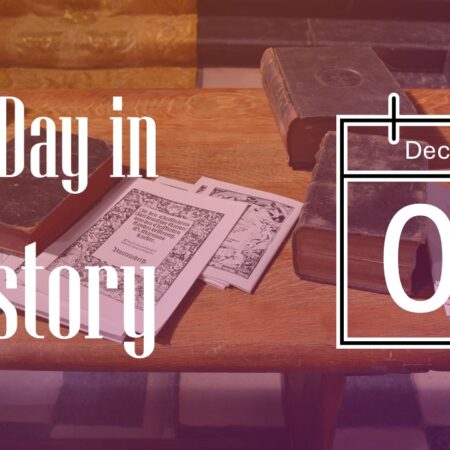
1829
HT: The Reformation Resurgence
India in the 18th century bore a scar so deep it cried out to heaven—Sati, the burning of widows alive. Women, stripped of hope and dragged to the flames, were sacrificed on the altar of cruel tradition. This wasn’t worship. This wasn’t devotion. It was murder wrapped in religion, a lie perpetuated by a society blinded by false gods and demonic strongholds.
But God was not silent. He raised up a man from the cobbled streets of England, a man armed with nothing but faith and the Word of God. William Carey, a Baptist missionary, stepped into this fiery darkness with the gospel as his weapon and the conviction that every human life was sacred. Where others bowed to fear, Carey stood. Where others excused the tradition, Carey exposed the evil.

When William Carey, often hailed as the “father of modern missions,”arrived in Bengal (India) in 1793, he encountered a scene that would forever change his life: women, some as young as teenagers, thrown alive onto their husbands’ funeral pyres, their screams drowned by chanting priests and the apathy of a society enslaved to false gods. This was not culture. This was carnage. Their cries pierced the heavens, but society called it “duty.” Carey knew better. He called it hell on earth.
Carey’s battle was not fought with swords or politics but with the truth of Scripture. The Bible declared that all life was made in the image of God (Genesis 1:27). It proclaimed that death and destruction had been defeated through Christ (Romans 6:10). And it commanded the people of God to stand for the oppressed (Proverbs 31:8–9).
So Carey acted. He Documented the Evil: Carey meticulously recorded every case of Sati, creating an undeniable catalogue of brutality. He refused to let this horror remain hidden in the shadows.
He Advocated Without Fear: Carey took his findings to the British authorities, relentlessly pressing them to abolish this wicked practice. His petitions were not mere pleas; they were a cry for justice from the heart of God.
He Translated Freedom: When Sati was outlawed through Regulation XVII in 1829, Carey personally translated the law into Bengali, ensuring that no widow would be consumed by ignorance of her rights and on this day, Sati was abolished in India.
Carey’s fight against Sati was not just a cultural battle; it was a spiritual war. He knew the root of Sati lay in spiritual darkness, and only the gospel could shatter its chains. The Word of God was his foundation, his weapon, and his hope.
Life Is Sacred: Carey proclaimed that every human being, male or female, bore the image of God (Genesis 1:26–27). To burn a widow was not just murder; it was an assault on the Creator Himself.
Christ Defeated Death: Sati glorified death, but Carey preached the risen Christ, who triumphed over the grave and offered eternal life to all who believed (1 Corinthians 15:55).
True Worship Is Life, Not Death: Carey taught that God desires living sacrifices—lives devoted to Him—not burnt offerings of innocent women (Romans 12:1).
Carey’s conviction came from the gospel, a fire that no earthly flame could extinguish.
History, however, has a way of twisting the truth. While Carey laboured tirelessly to end Sati, another figure, Raja Ram Mohan Roy, took the spotlight. A Brahmin reformer, Roy advocated for the abolition of Sati but did so within the framework of Hindu philosophy. His role, though significant among the elite, paled in comparison to Carey’s tireless efforts on the ground.
Yet colonial authorities, eager to present the abolition as a collaboration, elevated Roy while sidelining Carey. Post-independence narratives further buried Carey’s contributions to bolster nationalist pride. But the truth remains: without Carey’s fearless advocacy, Roy’s words would have fallen into the abyss of inaction.
Carey’s victory over Sati was not the end of his mission. He brought the Bible to India in Bengali, Hindi, and Sanskrit, giving millions access to God’s Word. He built schools that welcomed the marginalized and fought caste discrimination. He stood against infanticide and child marriage. Every battle he fought, every victory he won, was fuelled by the gospel of Jesus Christ.
Carey’s life was a declaration of Isaiah 61:1: “The Spirit of the Lord God is upon me, because the Lord has anointed me to bring good news to the poor; he has sent me to bind up the brokenhearted, to proclaim liberty to the captives, and the opening of the prison to those who are bound.”
This is not just Carey’s story; it is our calling. The same Word of God that burned in Carey’s heart burns in ours today. Will we stand against the injustices of our time? Will we confront the lies of our culture with the truth of the gospel?
This is the legacy of William Carey—the man who defied hellfire with heaven’s truth. Let us walk in his footsteps, armed with the same gospel, and burn with the same holy passion to see darkness overthrown by the light of Christ.
He, who has ears to hear, let him hear.
